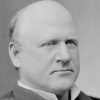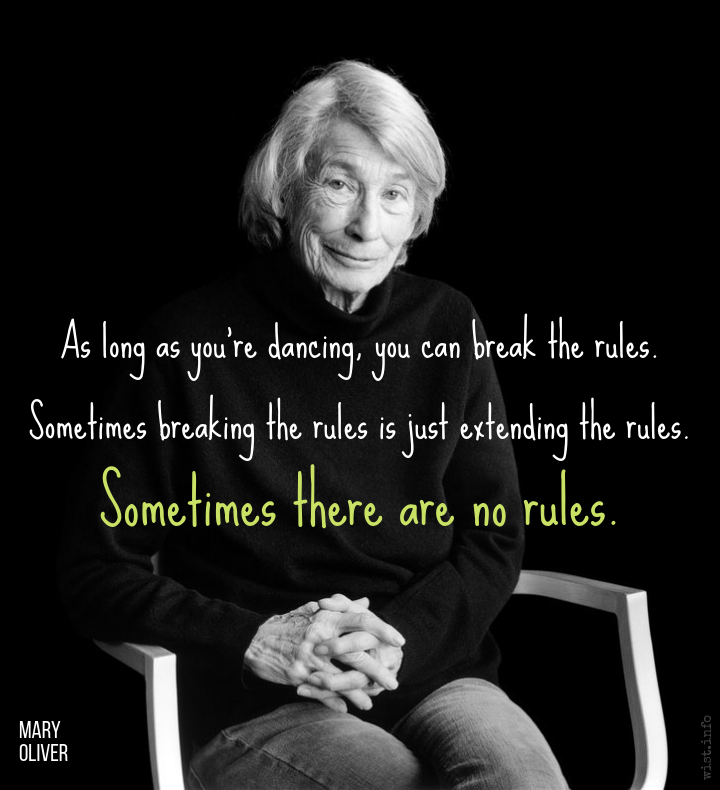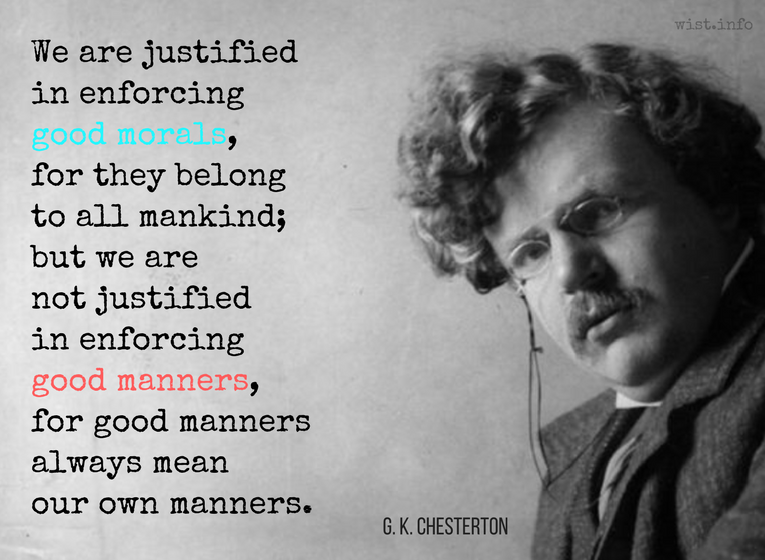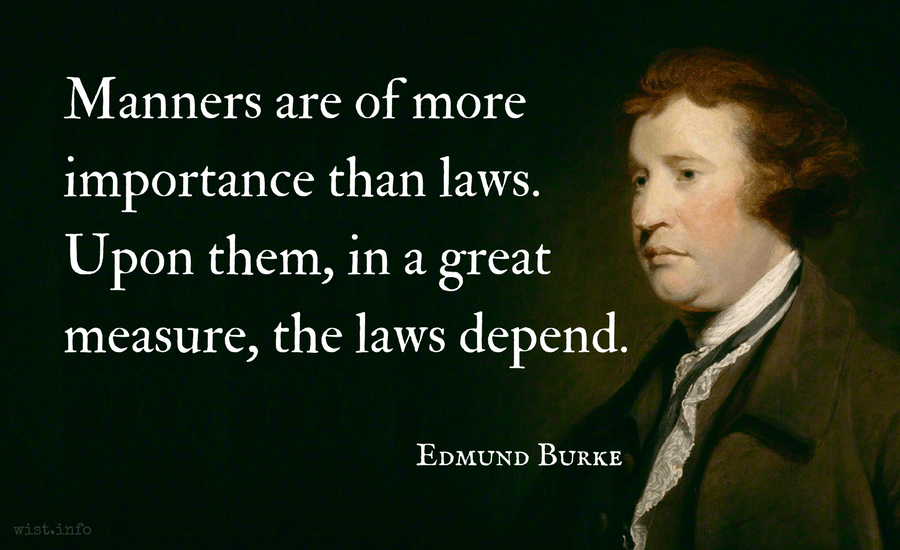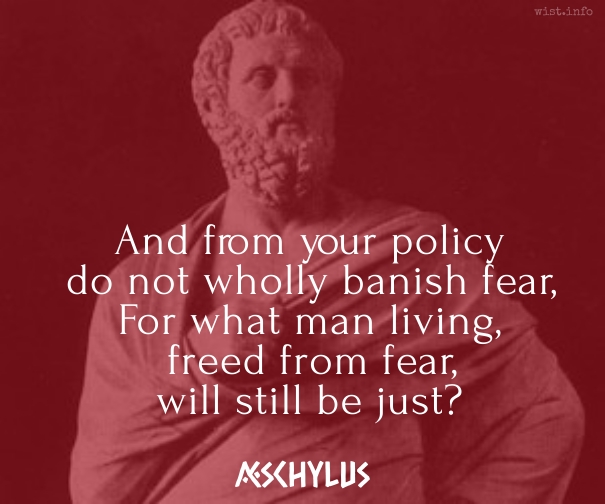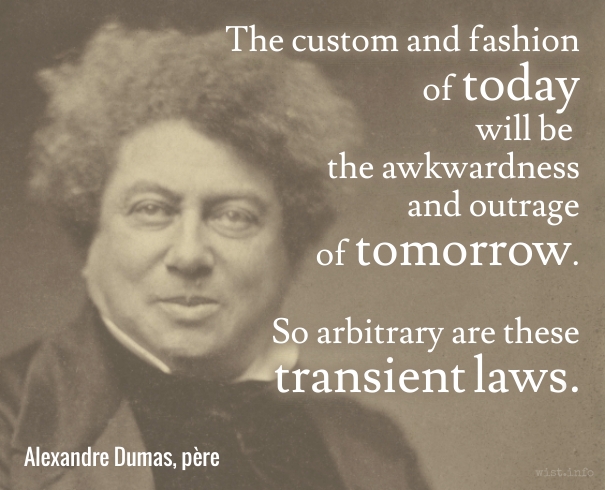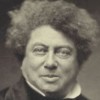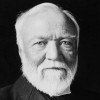Experience has clearly shown that the existing process of law cannot overcome systematic and ingenious discrimination. No law that we now have on the books — and I have helped to put three of them there — can ensure the right to vote when local officials are determined to deny it.
In such a case our duty must be clear to all of us. The Constitution says that no person shall be kept from voting because of his race or his color. We have all sworn an oath before God to support and to defend that Constitution. We must now act in obedience to that oath.Lyndon B. Johnson (1908-1973) American politician, educator, US President (1963-69)
Speech (1965-03-15), “The American Promise,” Joint Session of Congress [14:20]
(Source)
Quotations about:
law
Note not all quotations have been tagged, so Search may find additional quotes on this topic.
Legitimacy is based on three things. First of all, the people who are asked to obey authority have to feel like they have a voice — that if they speak up, they will be heard. Second, the law has to be predictable. There has to be a reasonable expectation that the rules tomorrow are going to be roughly the same as the rules today. And third, the authority has to be fair. It can’t treat one group differently from another.
Malcolm Gladwell (b. 1963) Anglo-Canadian journalist, author, public speaker
David and Goliath: Underdogs, Misfits, and the Art of Battling Giants (2013)
(Source)
Two conditions are essential to the realization of justice according to law. The law must have an authority supreme over the will of the individual, and such an authority can arise only from a background of social acquiescence, which gives it the voice of indefinitely greater numbers than those of its expositors. Thus, the law surpasses the deliverances of even the most exalted of its prophets; the momentum of its composite will alone makes it effective to coerce the individual and reconciles him to his subserviency. The pious traditionalism of the law has its roots in a sound conviction of this necessity; it must be content to lag behind the best inspiration of its time until it feels behind it the weight of such general acceptance as will give sanction to its pretension to unquestioned dictation.
Learned Hand (1872-1961) American jurist
“The Speech of Justice,” Harvard Law Review (1916-04)
(Source)
Collected in The Spirit of Liberty (1953).
Law is the highest reason, rooted in nature, which commands things that must be done and prohibits the opposite.
[Lex est ratio summa, insita in natura, quae iubet ea quae facienda sunt, prohibetque contraria.]
Marcus Tullius Cicero (106-43 BC) Roman orator, statesman, philosopher
De Legibus [On the Laws], Book 1, ch. 6 (1.6) / sec. 18 [Marcus] (c. 51 BC) [tr. Zetzel (1999)]
(Source)
Quoting "many" or "most" learned men (by which Cicero means Stoics). (Source (Latin)). Alternate translations:
"Law (say they) is the highest reason, implanted in nature, which prescribes those things which ought to be done, and forbids the contrary."
[tr. Barham (1842)]
"Law," say they, "is the highest reason implanted in nature, which prescribes those things which ought to be done, and forbids the contrary."
[tr. Barham/Yonge (1878)]
Law is the highest expression of the system of nature, which ordains what is right and forbids what is wrong.
[ed. Harbottle (1906)]
Law is the highest reason, implanted in Nature, which commends what ought to be done and forbids the opposite.
[tr. Keyes (1928)]
Law is the highest reason, inherent in nature, which enjoins what ought to be done and forbids the opposite.
[tr. Rudd (1998)]
Since law constitutes the bond of civil society, and the authority of the law is equal, how can the society of citizens be maintained when their condition is not equal? If it be not pleasing to place their wealth on equal footing, and if everyone is endowed with unequal abilities, certainly all of those who are citizens of the same republic ought to have equal rights. For, what is the state but the shared rights of its citizens?
[Quare cum lex sit civilis societatis vinculum, ius autem legis aequale, quo iure societas civium teneri potest, cum par non sit condicio civium? Si enim pecunias aequari non placet, si ingenia omnium paria esse non possunt, iura certe paria debent esse eorum inter se, qui sunt cives in eadem re publica. Quid est enim civitas nisi iuris societas?]
Marcus Tullius Cicero (106-43 BC) Roman orator, statesman, philosopher
De Re Publica [On the Republic, On the Commonwealth], Book 1, ch. 32 / sec. 49 (1.49) (54-51 BC) [tr. @sentantiq (2017)]
(Source)
(Source (Latin)). Alternate translations:
Wherefore as the law is the bond of civil society, and equal rights form that of the law, by what power can a community of citizens be maintained, where their condition is not an equal one? If therefore it is not expedient to equalize fortunes; if the powers of mind cannot be equalized in all, certainly then an equality of rights ought to exist, among those who are citizens of the same republic. For what is a state but a community of rights?
[tr. Featherstonhaugh (1829)]
Wherefore, since the law is the bond of civil society, and the justice of the law equal, by what rule can the association of citizens be held together, if the condition of the citizens be not equal? For if the fortunes of men cannot be reduced to this equality—if genius cannot be equally the property of all—rights, at least, should be equal among those who are citizens of the same republic. For what is a republic but an association of rights?
[tr. Barham (1841)]
Wherefore, since the law is the bond of civil society, and the justice of the law equal, by what rule can the association of citizens be held together, if the condition of the citizens be not equal? For if the fortunes of men cannot be reduced to this equality -- if genius cannot be equally the property of all -- rights, at least, should be equal among those who are citizens of the same republic. For what is a republic but an association of rights?
[tr. Yonge (1853)]
Therefore, since law is the bond which unites the civic association, and the justice enforced by law is the same for all, by what justice can an association of citizens be held together when there is no equality among the citizens? For if we cannot agree to equalize men’s wealth, and equality of innate ability is impossible, the legal rights at least of those who are citizens of the same commonwealth ought to be equal. For what is a State except an association or partnership in justice?
[tr. Keyes (1928)]
Since, then, law is the bond that holds political society together, and since equality of rights is a part of law, by what principle of right can an association of citizens be held together, when the status of these citizens is not equal? For, if it is not thought desirable that property should be equally distributed, and if the natural capacities of all men cannot possibly be equal, yet certainly all who are citizens of the same commonwealth ought to enjoy equal rights in their mutual relations. What, indeed, is a state, if it is not an association of citizens united by law?
[tr. Sabine/Smith (1929)]
Since, then, law is the bond which holds together a community of citizens, and the justice embodied in the law is the same for everyone, by what right can a community of citizens be held together when their status is unequal? If the equalization of wealth is rejected, and the equalization of everybody’s abilities is impossible, legal rights at least must be equal among those who live as fellow-citizens in the same state. For what is a state other than an equal partnership in justice?
[tr. Rudd (1998)]
And therefore, since law is the bond of civil society, and rights under law are equal, then by what right can a society of citizens be held together when the status of citizens is not the same? Even if equality of property is not appealing, and if the mental abilities of all cannot be equal, certainly the rights of all who are citizens of the same commonwealth ought to be equal. What is a state if not the association of citizens under the law?
[tr. Zetzel (1999)]
We cannot, by total reliance on law, escape the duty to judge right and wrong [….] There are good laws and there are occasionally bad laws, and it conforms to the highest traditions of a free society to offer resistance to bad laws, and to disobey them.
Alexander M. Bickel (1924-1974) Romanian-American law professor, constitutional scholar
Politics and the Warren Court, Part 3, ch. 5 “Civil Rights and Civil Disobedience” (1965)
(Source)
Our legislators are not sufficiently apprised of the rightful limits of their powers: that their true office is to declare and enforce only our natural rights and duties, & to take none of them from us. No man has a natural right to commit aggression on the equal rights of another; and this is all from which the laws ought to restrain him: every man is under the natural duty of contributing to the necessities of the society; and this is all the laws should enforce on him.
Thomas Jefferson (1743-1826) American political philosopher, polymath, statesman, US President (1801-09)
Letter (1816-06-07) to Francis W. Gilmer
(Source)
Civilization, let me tell you what it is. First the soldier, then the merchant, then the priest, then the lawyer. The merchant hires the soldier and priest to conquer the country for him. First the soldier, he is a murderer; then the priest, he is a liar; then the merchant, he is a thief; and they all bring in the lawyer to make their laws and defend their deeds, and there you have your civilization!
Katherine Anne Porter (1890-1980) American journalist, essayist, author, political activist [b. Callie Russell Porter]
Ship of Fools, Part 2 [Hansen] (1962)
(Source)
Well, that’s Philosophy I’ve read,
And Law and Medicine, and I fear
Theology, too, from A to Zed;
Hard studies all, that have cost me dear.
And so I sit, poor silly man
No wiser now than when I began.[Habe nun, ach! Philosophie,
Juristerei und Medizin,
Und leider auch Theologie
Durchaus studiert, mit heißem Bemühn.
Da steh ich nun, ich armer Tor!
Und bin so klug als wie zuvor.]Johann Wolfgang von Goethe (1749-1832) German poet, statesman, scientist
Faust: a Tragedy [eine Tragödie], Part 1, sc. 4 “Night,” ll. 354ff (1808-1829) [tr. Luke (1987)]
(Source)
Some translations (and this site) include the Declaration, Prelude on the Stage, and Prologue in Heaven as individual scenes; others do not, leading to their Part 1 scenes being numbered three lower.
(Source (German)). Alternate translations:
I've studied now Philosophy
And Jurisprudence, Medicine,
And even, alas! Theology
All through and through with ardour keen!
Here now I stand, poor fool, and see
I'm just as wise as formerly.
[tr. Priest (1808)]
Now I have toil'd thro' all; philosophy,
Law, physic, and theology: alas!
All, all I have explor'd; and here I am
A weak blind fool at last: in wisdom risen
No higher than before.
[tr. Coleridge (1821)]
I have now, alas, by zealous exertion, thoroughly mastered philosophy, the jurist's craft, and medicine -- and to my sorrow, theology too. Here I stand, poor fool that I am, just as wise as before.
[tr. Hayward (1831)]
I have, alas! Philosophy,
Medicine, Jurisprudence too,
And to my cost Theology,
With ardent labour, studied through.
And here I stand, with all my lore,
Poor fool, no wiser than before.
[tr. Swanwick (1850)]
Have now, alas! quite studied through
Philosophy and Medicine,
And Law, and ah! Theology, too,
With hot desire the truth to win!
And here, at last, I stand, poor fool!
As wise as when I entered school
[tr. Brooks (1868)]
I've studied now Philosophy
And Jurisprudence, Medicine, --
And even, alas! Theology, --
From end to end, with labor keen;
And here, poor fool! with all my lore
I stand, no wiser than before:
[tr. Taylor (1870)]
There now, I’ve toiled my way quite through
Law, Medicine, and Philosophy,
And, to my sorrow, also thee,
Theology, with much ado;
And here I stand, poor human fool,
As wise as when I went to school.
[tr. Blackie (1880)]
I have studied, alas! Philosophy,
And Jurisprudence, and Medicine, too,
And saddest of all, Theology,
With arden labor, through and through!
And here I stick, as wise, poor fool,
As when my steps first turned to school.
[tr. Latham (1908)]
I have, alas, studied philosophy,
Jurisprudence and medicine, too,
And, worst of all, theology
With keen endeavor, through and through --
And here I am, for all my lore,
The wretched fool I was before.
[tr. Kaufmann (1961)]
Alas, I have studied philosophy,
the law as well as medicine,
and to my sorrow, theology;
studied them well with ardent zeal,
yet here I am, a wretched fool
no wiser than I was before.
[tr. Salm (1962)]
I have pursued, alas, philosophy,
Jurisprudence, and medicine, And, help me God, theology,
With fervent zeal through thick and thin.
And here, poor fool, I stand once more,
No wiser than I was before.
[tr. Arndt (1976)]
I've studied, alas, philosophy,
Law and medicine, recto and verso,
And how I regret it, theology also,
Oh God, how hard I've slaved away,
With what result? Poor foolish old man,
I'm not whit wiser than when I began!
[tr. Greenberg (1992)]
Medicine, and Law, and Philosophy --
You've worked your way through every school,
Even, God help you, Theology,
And sweated at it like a fool.
Why labour at it any more?
You're no wiser now than you were before.
[tr. Williams (1999)]
Ah! Now I’ve done Philosophy,
I’ve finished Law and Medicine,
And sadly even Theology:
Taken fierce pains, from end to end.
Now here I am, a fool for sure!
No wiser than I was before.
[tr. Kline (2003)]
You think that a wall as solid as the earth separates civilization from barbarism. I tell you the division is a thread, a sheet of glass. A touch here, a push there, and you bring back the reign of Saturn.
John Buchan (1875-1940) Scottish novelist, poet, and politician; Governor-General of Canada (1935 -1940)
The Power-House, ch. 3 (1916)
(Source)
The task is to throw all those things on the exact same burn pile as the collected works of all the apologists for conservatism, and start fresh. The core proposition of anti-conservatism requires no supplementation and no exegesis. It is as sufficient as it is necessary. What you see is what you get:
The law cannot protect anyone unless it binds everyone; and it cannot bind anyone unless it protects everyone.
Frank Wilhoit (contemp.) American composer and software architect
Crookedtimber.org, “The Travesty of Liberalism,” Comment #26 (22 Mar 2018)
(Source)
Conservatism consists of exactly one proposition, to wit:
There must be in-groups whom the law protects but does not bind, alongside out-groups whom the law binds but does not protect.
There is nothing more or else to it, and there never has been, in any place or time.
Frank Wilhoit (contemp.) American composer and software architect
Crookedtimber.org, “The Travesty of Liberalism,” Comment #26 (22 Mar 2018)
(Source)
Contumely always falls upon those who break through some custom or convention. Such men, in fact, are called criminals. Everyone who overthrows an existing law is, at the start, regarded as a wicket man. Long afterward, when it is found that this law was bad and so cannot be re-established, the epithet is changed. All history treats almost exclusively of wicked men who, in the course of time, have come to be looked upon as good men. All progress is the result of successful crimes.
Friedrich Nietzsche (1844-1900) German philosopher and poet
The Dawn [Morgenröte], sec. 20 (1881) [Mencken (1907)]
(Source)
Alternate translations:
We have to make good a great deal of the contumely which has fallen on all those who, by their actions, have broken through the conventionality of some custom -- such people generally have been called criminals. Everybody who overthrew the existing moral law has hitherto, at least in the beginning, been considered a wicked man; but when afterwards, as sometimes happened, the old law could not be re-established and had to be abandoned, the epithet was gradually changed. History almost exclusively treats of such wicked men who, in the course of time, have been declared good men.
[tr. Volz (1903)]
One has to take back much of the defamation which people have cast upon all those who broke through the spell of a custom by means of a deed -- in general, they are called criminals. Whoever has overthrown an existing law of custom has hitherto always first been accounted a bad man: but when, as did happen the laws could not afterwards be reinstated and this fact was accepted, the predicate gradually changed -- history treats almost exclusively of these bad men who subsequently became good men!
[tr. Hollingdale (1997)]
I am certainly not an advocate for frequent & untried changes in laws and constitutions. I think moderate imperfections had better be borne with; because when once known, we accommodate ourselves to them, and find practical means of correcting their ill effects. but I know also that laws and institutions must go hand in hand with the progress of the human mind. as that becomes more developed, more enlightened, as new discoveries are made, new truths disclosed, and manners and opinions change with the change of circumstances, institutions must advance also, and keep pace with the times. we might as well require a man to wear still the coat which fitted him when a boy, as civilised society to remain ever under the regimen of their barbarous ancestors.
Thomas Jefferson (1743-1826) American political philosopher, polymath, statesman, US President (1801-09)
Letter (1816-07-12) to “Henry Tompkinson” (Samuel Kercheval)
(Source)
Inscribed (elided) on southeast side of the Jefferson Memorial:
I am not an advocate for frequent changes in laws and constitutions, but laws and institutions must go hand in hand with the progress of the human mind. As that becomes more developed, more enlightened, as new discoveries are made, new truths discovered and manners and opinions change, with the change of circumstances, institutions must advance also to keep pace with the times. We might as well require a man to wear still the coat which fitted him when a boy as a civilized society to remain ever under the regimen of their barbarous ancestors.
Justice? — You get justice in the next world, in this world you have the law.
All laws for the purpose of making man worship God, are born of the same spirit that kindled the fires of the auto da fe, and lovingly built the dungeons of the Inquisition. All laws defining and punishing blasphemy — making it a crime to give your honest ideas about the Bible, or to laugh at the ignorance of the ancient Jews, or to enjoy yourself on the Sabbath, or to give your opinion of Jehovah, were passed by impudent bigots, and should be at once repealed by honest men.
Robert Green Ingersoll (1833-1899) American lawyer, agnostic, orator
Some Mistakes of Moses, Sec. 3 “The Politicians” (1879)
(Source)
No society can exist unless the laws are respected to a certain degree. The safest way to make laws respected is to make them respectable. When law and morality contradict each other, the citizen has the cruel alternative of either losing his moral sense or losing his respect for the law.
[Aucune société ne peut exister si le respect des Lois n’y règne à quelque degré ; mais le plus sûr, pour que les lois soient respectées, c’est qu’elles soient respectables. Quand la Loi et la Morale sont en contradiction, le citoyen se trouve dans la cruelle alternative ou de perdre la notion de Morale ou de perdre le respect de la Loi.]
Frédéric Bastiat (1801-1850) French philosopher, economist, politician
The Law [La Loi] (1850) [tr. Russell]
(Source)
We can’t function as a society unless we have norms of how to behave. You can’t pass enough laws to take care of every human interaction.
Jerry Springer (b. 1944) Anglo-American broadcaster, actor, producer, politician
Interview by Stephanie Ruhle, MSNBC, @1:12 (1 Nov 2019)
(Source)
Censorship laws are blunt instruments, not sharp scalpels. Once enacted, they are easily misapplied to merely unpopular or only marginally dangerous speech.
Alan M. Dershowitz (b. 1938) American lawyer, jurist, political commentator
Finding, Framing, and Hanging Jefferson, ch. 15 (2008)
(Source)
In a predatory economy, the rules imagined by the law and economics crowd don’t apply. There’s no market discipline. Predators compete not by following the rules but by breaking them. They take the business-school view of law: Rules are not designed to guide behavior but laid down to define the limits of unpunished conduct. Once one gets close to the line, stepping over it is easy. A predatory economy is criminogenic: It fosters and rewards criminal behavior.
John Kenneth Galbraith (1908-2006) Canadian-American economist, diplomat, author
“The Predator State,” Mother Jones (May/Jun 2006)
(Source)
For the moral point of this matter is never reached by calling what happened by the name of “genocide” or by counting the many millions of victims: the extermination of whole peoples had happened before in antiquity, as well as in modern colonization. It is reached only when we realize that this happened within the frame of a legal order and that the cornerstone of this “new law” consisted of the command “Thou shalt kill,” not thy enemy but innocent people who were not even potentially dangerous, and not for any reason of necessity but, on the contrary, even against all military and other utilitarian considerations.
Hannah Arendt (1906-1975) German-American philosopher, political theorist
“Personal Responsibility Under Dictatorship” (1964)
(Source)
Law never made men a whit more just; and, by means of their respect for it, even the well-disposed are daily made the agents of injustice. A common and natural result of an undue respect for the law is, that you may see a file of soldiers, colonel, captain, corporal, privates, powder-monkeys and all, marching in admirable order over hill and dale to the wars, against their wills, aye, against their common sense and consciences, which makes it very steep marching indeed, and produces a palpitation of the heart. They have no doubt that it is a damnable business in which they are concerned; they are all peaceably inclined. Now, what are they? Men at all? or small movable forts and magazines, at the service of some unscrupulous man in power?
Henry David Thoreau (1817-1862) American philosopher and writer
“On the Duty of Civil Disobedience” (1849)
(Source)
Therefore he who bids the law rule may be deemed to bid God and Reason alone rule, but he who bids man rule adds an element of the beast; for desire is a wild beast, and passion perverts the minds of rulers, even when they are the best of men. The law is reason unaffected by desire.
Aristotle (384-322 BC) Greek philosopher
Politics [Πολιτικά], Book 3, ch. 16 / 1287a.32 [tr. Jowett (1885)]
(Source)
Alternate translations:
- "He, therefore, who wishes Law to govern seems to wish for the rule of God and Intellect alone; he who wishes men to rule bring sin the element of the animal. For appetites are of this lower nature, and anger distorts the judgment of rulers, even of the best. And so Law is Intellect without animal impulses." [tr. Bolland (1877)]
- "Moreover, he who would place the supreme power in mind, would place it in God and the laws; but he who entrusts man with it, gives it to a wild beast, for such his appetites sometimes make him; for passion influences those who are in power, even the very best of men: for which reason law is reason without desire." [tr. Ellis (1912)]
- "He therefore that recommends that the law shall govern seems to recommend that God and reason alone shall govern, but he that would have man govern adds a wild animal also; for appetite is like a wild animal, and also passion warps the rule even of the best men. Therefore the law is wisdom without desire." [tr. Rackham (1932)]
- "One who asks law to rule, therefore, is held to be asking god and intellect alone to rule, while one who asks man adds the beast. Desire is a thing of this sort; and spiritedness perverts rulers and the best men. Hence law is intellect without appetite." [tr. Lord (1984)]
Even when laws have been written down, they ought not always to remain unaltered. As in other sciences, so in politics, it is impossible that all things should be precisely set down in writing; for enactments must be universal, but actions are concerned with particulars.
Aristotle (384-322 BC) Greek philosopher
Politics [Πολιτικά], Book 2, ch. 8 / 1269a.9 [tr. Jowett (1885)]
(Source)
Alt. trans.
- "Nor is it, moreover, right to permit written laws always to remain without alteration; for as in all other sciences, so in politics, it is impossible to express everything in writing with perfect exactness; for when we commit anything to writing we must use general terms, but in every action there is something particular to itself, which these may not comprehend." [tr. Ellis (1912)]
- "Moreover even written codes of law may with advantage not be left unaltered. For just as in the other arts as well, so with the structure of the state it is impossible that it should have been framed aright in all its details; for it must of necessity be couched in general terms, but our actions deal with particular things." [tr. Rackham (1932)]
- "In addition t this, it is not best to leave written laws unchanged. For just as in the case of the other arts, so with respect to political arrangements it is impossible for everything to be written down precisely; for it is necessary to write them in universal fashion, while actions concern particulars." [tr. Lord (1984)]
Injustice often arises also through chicanery, that is, through an over-subtle and even fraudulent construction of the law. This it is that gave rise to the now familiar saw, “More law, less justice.”
[Existunt etiam saepe iniuriae calumnia quadam et nimis callida sed malitiosa iuris interpretatione. Ex quo illud “summum ius summa iniuria” factum est iam tritum sermone proverbium.]
Marcus Tullius Cicero (106-43 BC) Roman orator, statesman, philosopher
De Officiis [On Duties; On Moral Duty; The Offices], Book 1, ch. 10 (1.10) / sec. 33 (44 BC) [tr. Miller (1913)]
(Source)
(Source (Latin)). Alternate translations:
But another great spring from which injuries arise, is some quirk or cavil, and an oversubtle and malicious interpretation of the laws; from whence that saying, "The height of justice is the height of roguery," is now become a daily and common proverb among us.
[tr. Cockman (1699)]
Injustice is often done by artful evasions, and from a too shrewd, but malicious interpretation of the laws. Hence the proverb, "the strictest justice is the greatest injury," has become quite familiar in conversation.
[tr. McCartney (1798)]
Very often wrongs arise through a quirk, and through a too artful but fraudulent construction of the law. Hence, "the rigour of law is the rigour of injustice," is a saying that has now passed into a proverb.
[tr. Edmonds (1865)]
There are, also, wrongs committed by a sort of chicanery, which consists in a too subtle, and thus fraudulent, interpretation of the right. Hence comes the saying: The extreme of right is the extreme of wrong.
[tr. Peabody (1883)]
A common form of injustice is chicanery, that is, an over-subtle, in fact a fraudulent construction of the law. Hence the hackneyed proverb: "The greatest right is the greatest wrong."
[tr. Gardiner (1899)]
A perversion of justice, some extremely clever but harmful interpretation of a statute, also is a frequent cause of wrongdoing. Hence we have the saying, "Extreme legality is the worst law," a proverb become a cliche by daily use.
[tr. Edinger (1974)]
See Terence.
Good government makes everything well ordered and fit,
And at the same time it throws shackles on the unjust.
It levels out the rough, stops insolence, and weakens arrogance.
It causes the growing blossoms of blindness to wither.
It straightens crooked judgments and it levels out over-reaching deeds.
It stops the acts of civil conflict and
It stops the anger of grievous strife and because of it
Everything among men is wisely and appropriately done.[Εὐνομίη δ’ εὔκοσμα καὶ ἄρτια πάντ’ ἀποφαίνει,
καὶ θαμὰ τοῖς ἀδίκοις ἀμφιτίθησι πέδας·
τραχέα λειαίνει, παύει κόρον, ὕβριν ἀμαυροῖ,
αὑαίνει δ’ ἄτης ἄνθεα φυόμενα,
εὐθύνει δὲ δίκας σκολιάς, ὑπερήφανά τ’ ἔργα
πραΰνει· παύει δ’ ἔργα διχοστασίης,
παύει δ’ ἀργαλέης ἔριδος χόλον, ἔστι δ’ ὑπ’ αὐτῆς
πάντα κατ’ ἀνθρώπους ἄρτια καὶ πινυτά.]Solon (c. 638 BC - 558 BC) Athenian statesman, lawmaker, poet
Fragment 4.32-39 W [tr. @sententiq (2015)]
(Source)
Solon's description of eunomiē (lawfulness). Alt. trans.:Lawfulness, puts all things into good order and makes them sound,
And often places shackles about those who are unjust.
She smooths what is rough, puts an end to excess, enfeebles arrogance;
She withers the flowers of ruin as they spring up;
She straightens crooked judgments, and overbearing acts she turns to gentleness;
She puts an end to acts of dissension,
Puts an end to the bitterness of painful strife:
Beneath her hand all things among mankind are sound and prudent.
[tr. Miller (1996)]
Good Government displays all neatness and order,
And many times she must put shackles on the breakers of laws
She levels rough places, stops Glut and Greed, takes the force from Violence:
She dries up the growing flowers of Despair as they grow;
She straightens out crooked judgments given, gentles the swollen ambitions,
And puts an end to acts of divisional strife;
She stills the gall of wearisome Hate,
And under her influence all life among mankind is harmonious and does well.
[tr. Lattimore]
For laws are silent when arms are raised.
[Silent enim leges inter arma.]
Marcus Tullius Cicero (106-43 BC) Roman orator, statesman, philosopher
Pro Milone, ch. 4, sec. 11 [tr. Yonge (1891)]
(Source)
In context, Cicero is asserting that self-defense is a valid defense for killing, even though that principle was not written into Roman law. It has been extended in legal terms to times of war being exempt from normal laws regarding killing.
Alt. trans.:Original Latin.
- "For laws are silent among arms."
- "In a time of war, the law falls silent."
- "Laws are silent in time of war."
- "The laws are silent in warfare."
- "For among arms, the laws fall mute."
- "The power of law is suspended during war."
Society is only incidentally and in certain cases regulative, and law is no equivalent to the social order. […] Even in our civilization the law is never more than a crude implement of society, and one it is often enough necessary to check in its arrogant career. It is never to be read off as if it were the equivalent of the social order.
Ruth Benedict (1887-1947) American anthropologist
Patterns of Culture, ch. 8 “The Individual and Culture” (1934)
(Source)
Such is the unity of all history that any one who endeavors to tell a piece of it must feel that his first sentence tears a seamless web.
F. W. Maitland (1850-1906) English legal historian and jurist [Frederic William Maitland]
“A Prologue to a History of English Law,” Law Quarterly Review (Jan 1898)
(Source)
Prologue to the 2nd ed. of his and Pollock's History of English Law (1898). Frequently mis-paraphrased, "The law is a seamless web."
And just as the law in civilized countries assumes that the voice of conscience tells everybody, “Thou shalt not kill,” even though man’s natural desires and inclinations may at times be murderous, so the law of Hitler’s land demanded that the voice of conscience tell everybody: “Thou shalt kill,” although the organizers of the massacres knew full well that murder is against the normal desires and inclinations of most people. Evil in the Third Reich had lost the quality by which most people recognize it — the quality of temptation.
Hannah Arendt (1906-1975) German-American philosopher, political theorist
Eichmann in Jerusalem: A Report on the Banality of Evil, ch. 8 (1963)
(Source)
Modern politics cannot be a matter of genuine moral consensus. And it is not. Modern politics is civil war carried on by other means.
Alasdair MacIntyre (b. 1929) Scottish philosopher
After Virtue: A Study of Moral Theory, ch. 17 (1981)
(Source)
Think not the faith by which the just shall live
Is a dead creed, a map correct of heaven,
Far less a feeling fond and fugitive,
A thoughtless gift, withdrawn as soon as given.
It is an affirmation and an act
That bids eternal truth be present fact.Hartley Coleridge (1796-1849) English poet, biographer, essayist, teacher
“The Just Shall Live By Faith”
(Source)
But in view of the Constitution, in the eye of the law, there is in this country no superior, dominant, ruling class of citizens. There is no caste here. Our Constitution is color-blind, and neither knows nor tolerates classes among citizens. In respect of civil rights, all citizens are equal before the law. The humblest is the peer of the most powerful. The law regards man as man, and takes no account of his surroundings or of his color when his civil rights as guaranteed by the supreme law of the land are involved.
John Marshall Harlan (1833-1911) American lawyer, politician, Supreme Court Justice (1877-1911)
Plessy v. Ferguson 163 U.S. 537, 559 (1896) [dissent]
(Source)
It is worse than useless to try to put down by law a practice which a very large number of people believes to be innocent, and which must be left to the taste and conscience of the individual.
William Ralph Inge (1860-1954) English prelate [Dean Inge]
“The Birth-Rate” (1917), Outspoken Essays: First Series (1919)
(Source)
Speaking of birth control.
We give the highest and the most peculiar praise to the precepts of Machiavelli, when we say that they may frequently be of real use in regulating conduct — not so much because they are more just, or more profound, than those which might be culled from other authors as because they can be more readily applied to the problems of real life.
As long as you’re dancing, you can break the rules.
Sometimes breaking the rules is just extending the rules.Sometimes there are no rules.
We are justified in enforcing good morals, for they belong to all mankind; but we are not justified in enforcing good manners, for good manners always mean our own manners.
Gilbert Keith Chesterton (1874-1936) English journalist and writer
All Things Considered, “Limericks and Counsels of Perfection” (1908)
(Source)
Manners are of more importance than laws. Upon them, in a great measure, the laws depend. The law touches us but here and there, and now and then. Manners are what vex or soothe, corrupt or purify, exalt or debase, barbarize or refine us, but a constant, steady, uniform, insensible operation, like that of the air we breathe in. They give their whole form and color to our lives. According to their quality, they aid morals, they supply them, or they totally destroy them.
Edmund Burke (1729-1797) Anglo-Irish statesman, orator, philosopher
Letters on a Regicide Peace, Letter 1 (1796)
(Source)
Tolerance is not a moral absolute; it is a peace treaty.
Yonatan Zunger (b. 1977) American essayist, software engineer, physicist, ethicist
“Tolerance is not a moral precept” (2 Jun 2017)
(Source)
People say law, but they mean wealth.
But there is one way in this country in which all men are created equal — there is one human institution that makes a pauper the equal of a Rockefeller, the stupid man the equal of an Einstein, and the ignorant man the equal of any college president. That institution, gentlemen, is a court. It can be in the Supreme Court of the United States or the humblest J.P. court in the land, or this honorable court which you serve. Our courts have their faults, as does any human institution, but in this country our courts are the great levelers, and in our courts all men are created equal.
That conception is written large over the history of the nineteenth century, both in England and in America. The doctrine which it inherited was that property was held by an absolute right on an individual basis, and to this fundamental it added another, which can be traced in principle far back into history, but which grew to its full stature only after the rise of capitalist industry, that societies act both unfairly and unwisely when they limit opportunities of economic enterprise. Hence every attempt to impose obligations as a condition of the tenure of property or of the exercise of economic activity has been met by uncompromising resistance. The story of the struggle between humanitarian sentiment and the theory of property transmitted from the eighteenth century is familiar. No one has forgotten the opposition offered in the name of the rights of property to factory legislation, to housing reform, to interference with the adulteration of goods, even to the compulsory sanitation of private houses. “May I not do what I like with my own?” was the answer to the proposal to require a minimum standard of safety and sanitation from the owners of mills and houses.
R. H. Tawney (1880-1962) English writer, economist, historian, social critic [Richard Henry Tawney]
The Acquisitive Century, ch. 3 “The Acquisitive Society” (1920)
(Source)
The law, in all vicissitudes of government … will preserve a steady undeviating course; it will not bend to the uncertain wishes, imaginations, and wanton tempers of men. … On the one hand it is inexorable to the cries of the prisoners; on the other it is deaf, deaf as an adder to the clamours of the populace.
The law no passion can disturb. ‘Tis void of desire and fear, lust and anger. ‘Tis mens sine affectu, written reason, retaining some measure of the divine perfection. It does not enjoin that which pleases a weak, frail man, but, without any regard to persons, commands that which is good and punishes evil in all, whether rich or poor, high or low.
It must be made a sacred maxim, that the militia obey the executive power, which represents the whole people in the execution of laws. To suppose arms in the hands of citizens, to be used at the individual discretion, except in private self-defence, or by partial orders of towns, counties, or districts of a state, is to demolish every constitution, and lay the laws prostrate, so that liberty can be enjoyed by no man; it is a dissolution of the government. The fundamental law of the militia is, that it be created, directed and commanded by the laws, and ever for the support of the laws.
Tell us not that the world is governed by universal law; the news is not comfortable, but simply horrible, unless you can tell us, or allow others to tell us, that there is a loving giver, and a just administrator of that law.
Charles Kingsley (1819-1875) English clergyman, historian, essayist, novelist (pseud. "Parson Lot")
“The Meteor Shower,” sermon (26 Nov 1866)
(Source)
One of the things that I noticed in war was how difficult it was for our soldiers, at first, to realize that there are no rules to war. Our men were raised in sports, where a referee runs a football game, or an umpire a baseball game, and so forth.
The peace we seek and need means much more than mere absence of war. It means the acceptance of law, and the fostering of justice, in all the world.
A man’s first duty is to make a competence and be independent. But his whole duty does not end there. It his his duty to do something for his needy neighbors who are less favored than himself. It is his duty to contribute to the general good of the community in which he lives. He has been protected by its laws. Because he has been protected in his various enterprises he has been able to make money sufficient for his needs and those of his family. All beyond this belongs in justice to the protecting power that has fostered him and enabled him to win pecuniary success. To try and make the world in some way better than you have found is to have a noble motive in life.
I think all Christians would agree with me if I said that though Christianity seems at first to be all about morality, all about duties and rules and guilt and virtue, yet it leads you on, out of all that, into something beyond.
C. S. Lewis (1898-1963) English writer, literary scholar, lay theologian [Clive Staples Lewis]
Mere Christianity, “Faith” (1952)
(Source)


























